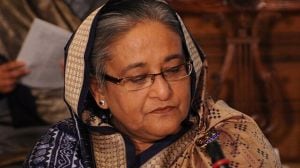
The court also disapproved of the “sealed cover” procedure that it has criticised on several occasions recently, and said that a “less intrusive” public interest immunity proceeding could be the way out.
The case
Story continues below this ad
The channel got security clearance from the Home Ministry on February 7, 2011, when the UPA-2 government was in power. Subsequently, on September 30, the Information & Broadcasting Ministry gave Madhyamam Broadcasting Ltd (MBL), the company that runs MediaOne, permission to uplink for 10 years.
On January 31, 2022, the I&B Ministry of the BJP government revoked the permission after the Home Ministry refused to grant fresh security clearance. According to the Supreme Court judgment delivered on Wednesday, the MHA cited the channel promoters’ alleged links with the Jamaat-e-Islami Hind.
Following the revoking of its licence, MediaOne went off air.
Before HC
The channel challenged the Centre’s action before the Kerala High Court. The Centre submitted during the hearing that its decision was based on grounds of national security.
Story continues below this ad
On February 9, 2022, a single Bench of the HC upheld the ban on the channel. On appeal, a division Bench of the High Court, on March 2, upheld the order of the single judge.
The HC relied on material that the Home Ministry submitted in a sealed cover. The division Bench observed that the files submitted by the Home Ministry “indicate that the Committee of Officers took note of the inputs provided by intelligence agencies” and “found that the inputs are of a serious nature and fall under the security rating parameters”. The Ministry accepted the advice of the Committee of Officers to not renew the channel’s licence.
The HC said that “Though the nature and gravity of the issue is not discernible from the files, there are clear indications that the security of the state and public order would be impacted if the permission granted to MBL to operate the channel is renewed”.
It said that “while the State cannot ordinarily interfere with the freedom of the press, the scope of judicial review in matters involving national security is limited”.
Appeal in SC
Story continues below this ad
The promoters of the channel contended that they did not get a chance to defend themselves because the national security reasons cited to deny renewal of licence were given only to the HC in a sealed cover. On March 15, 2022, the SC stayed the HC order and allowed the channel to resume operations.
On Wednesday, the SC set aside both the January 31, 2022 order of the I&B Ministry and the Kerala HC order upholding the government action. It criticised the sealed cover procedure adopted in the HC, as well as the “cavalier manner” in which the Centre had “raised the claim of national security” to deny the channel security clearance. It court said the channel had proved that its right to a fair hearing “has been infringed by the unreasoned order of the MIB…and the non-disclosure of relevant material to the appellants, and its disclosure solely to the court”.
NATIONAL SECURITY PLEA: “While we have held that it would be impracticable and unwise for the courts to define the phrase national security, we also hold that national security claims cannot be made out of thin air. There must be material backing such inference,” the court said. “The state is using national security as a tool to deny citizens remedies that are provided under the law. This is not compatible with the rule of law,” it said.
On the alleged links between the channel’s promoters and the Jamaat-e-Islami Hind, the judgment said that “when JEIH is not a banned organisation, it will be rather precarious for the state to contend that links with the organisation would affect the sovereignty and integrity of the nation, the security of the state, friendly relations with foreign states or public order”. (These are some of the “reasonable restrictions” on freedom of speech under Article 19(2).) The court also said there was no evidence on record to show that shareholders of the channel are JEIH sympathisers.
Story continues below this ad
PRESS FREEDOM: An independent press is vital for the robust functioning of a democratic republic, the SC said. The press has a duty to speak truth to power, and present citizens with hard facts enabling them to make choices that propel democracy in the right direction. A homogenised view on issues would pose grave dangers to democracy, the court said.
PUBLIC INTEREST IMMUNITY: The court said the sealed cover procedure violated principles of both natural justice and open justice, and devised a procedure for “public interest immunity claim” as a less restrictive alternative.
It said the court can appoint an amicus curiae to balance the concerns of confidentiality with the need to preserve public confidence in the objectivity of the justice delivery process. The amicus shall be given access to the materials sought to be withheld by the state, and shall be allowed to interact with the applicant and their counsel before the proceedings to ascertain their case to enable them to make effective submissions on the necessity of disclosure.
The amicus shall to the best of their ability represent the interests of the applicant. The amicus would be bound by oath to not disclose or discuss the material with any other person, including the applicant or their counsel.








































